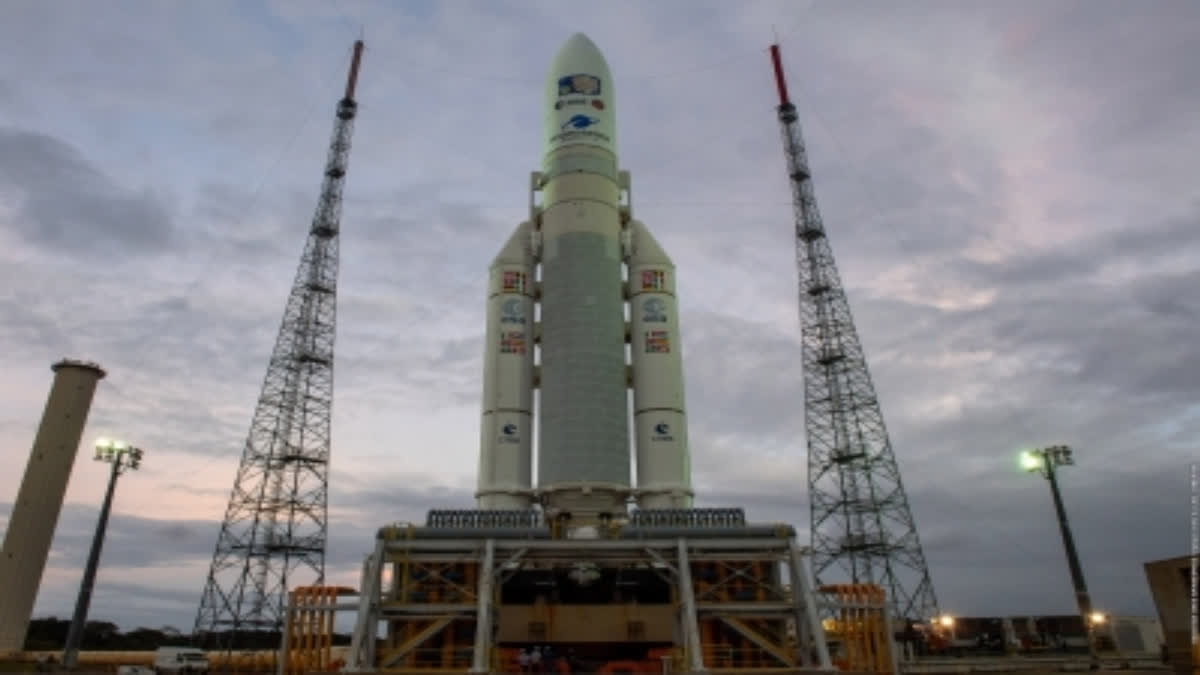Paris:The European Space Agency's (ESA) is all set to launch its first-ever mission to find alien life on the icy worlds of Jupiter on Thursday. The JUpiter ICy moons Explorer or JUICE mission is slated to take off at 8.15 a.m. EDT (5.45 p.m. IST) on Thursday from Europe's Spaceport in Kourou, French Guiana.
"Our main question is whether we could find habitable places within the Jupiter system. Learning more about Jupiter will tell us more about our #SolarSystem & other systems," said Olivier Witasse, ESA planetary scientist. Witasse said that the project is 32 years long in total, of which 16 years were spent in the making. After an eight-year journey to Jupiter, there will be another eight years of collecting data and then analysing it.
The mission will be the first to orbit the Moon of another planet. JUICE will make detailed observations of Jupiter and its three large ocean-bearing moons - Ganymede, Callisto and Europa - with a suite of instruments. The mission will characterise these moons as both planetary objects and possible habitats, explore Jupiter's complex environment in depth, and study the wider Jupiter system as an archetype for gas giants across the Universe.
"We'll explore Jupiter and its icy moons, which are Europa, Ganymede, and Callisto with a particular focus on Ganymede, which is a unique object in the solar system," Witasse said. "It is the only moon with a magnetic field and the biggest moon in the solar system. The main goal is to understand whether there are habitable environments among those icy moons and around a giant planet like Jupiter." According to ESA, the JUICE mission cost an estimated $1.7 billion and is a product of "global" cooperation between 23 countries, 18 academic institutions, and 83 private companies.
